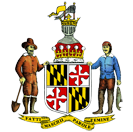| (Indianapolis: Louis Howland)
The Freeman began publication November 20, 1884 and ceased publication in 1927. From 1884 to 1888 it was published by Louis Howland. From 1888 to 1892 it was published by Edward C. Cooper. From 1892 to 1927 it was published by George L. Knox. Published weekly.
Edward C. Cooper founded the Indianapolis Freeman, the first black illustrated newspaper, in 1888. Subsidized by the Republican Party for some of its existence, the Freeman enjoyed large circulation because of its news coverage's variety and scope and its attention to black culture. In the 1890s, the Freeman acquired a reputation as the country's leading black journal. Black press historian, I. Penn Garland, called it "The Harper's Weekly of the colored race."
The Freeman achieved this status with a team of correspondents covering issues and events of interest to African Americans across the nation. In 1889, Mississippi correspondents wrote of opportunities in the Yazoo Delta Region and encouraged blacks to migrate to Arkansas, Kansas, and Texas. The Freeman provided extensive coverage of the 1893 Cincinnati conference on black progress and reported on discrimination and prejudice, such as the 1892 incident in Harrisburg, PA, where painters went on strike because they did not want to work with a recently employed black man. In 1897, the Freeman also reported on lynchings in the South, providing information on victims' race and other statistics starting from 1885.
Always a strong advocate of blacks' rights, the Freeman ran an 1889 editorial predicting that black Americans, growing tired of meekly waiting for their rights, "will cease to bend their knees in supplication." The editorial cited the actions of past black figures— Toussaint L'Ouverture, Crispus Attucks, Nat Turner—as examples of black assertiveness against adversity.
Cooper sold the Freeman to George L. Knox in 1892. Although the paper leaned toward the Republican Party, Cooper also had shown an independent streak, even endorsing Grover Cleveland in 1888. Under Knox, however, the paper became more strictly partisan, a party organ for Indiana Republicans.
With the coming of World War I (WW I) and the 1920s resurgence of the Ku Klux Klan (which dominated Indiana politics), Knox broke away from the Republican party, and the Freeman became a strong advocate for black rights, supporting the NAACP, calling for a ban on Birth ofa Nation in 1915, and adopting a strong and persistent anti-lynching campaign. During WW I, the paper editorialized on the hypocrisy ofa nation fighting a war to save democracy at the same time it tolerated blatant racism in its laws and institutions. The Freeman also covered extensively the wartime achievements of black Hoosiers. In the 1920s, the Freeman experienced economic problems; in 1927, it folded |
